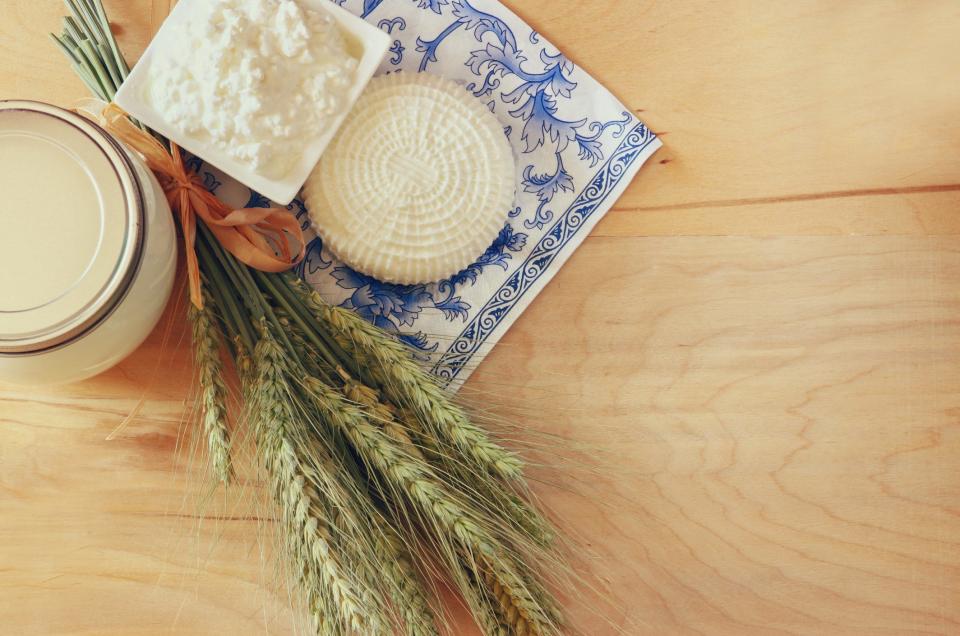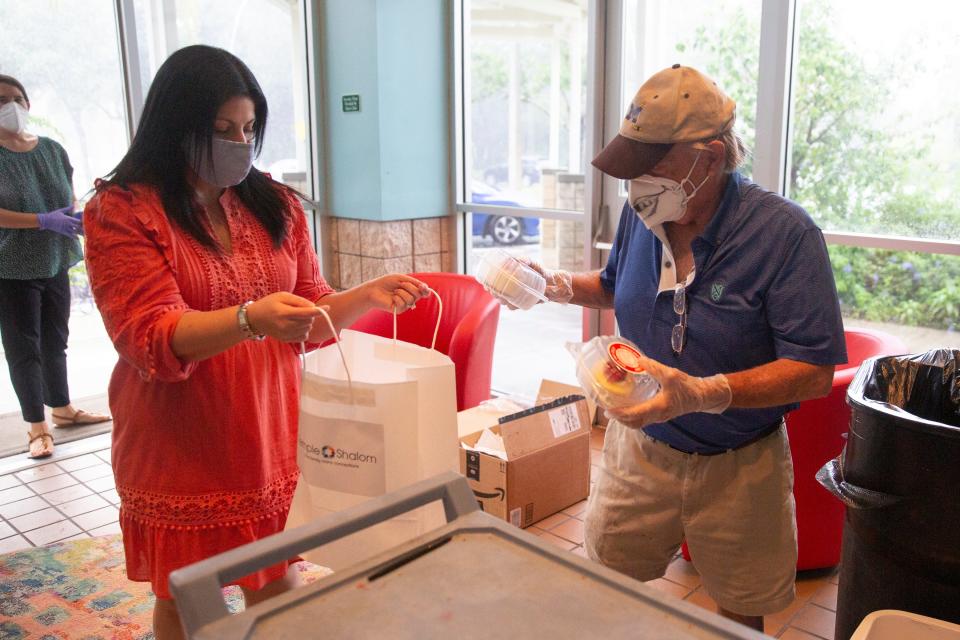What is Shavuot? Everything to know about the Jewish holiday, the Feast of Weeks

Hanukkah, Passover, Rosh Hashanah ... most non-Jewish people have at least a vague idea of what those commemorate, celebrate or honor. But how about Shavuot, the "Feast of Weeks?"
Shavuot, which means "weeks" in Hebrew, is probably the most important Jewish holiday you've never heard of, commemorating the single most important event in Israel's history.
Here's what you need to know.
What is Shavuot?
According to the Jewish faith, Shavuot celebrates the time when Moses received the 10 Commandments and the Torah by divine revelation — for Christians, in this case, the Torah would be considered the first five books of the Hebrew Bible, or the Old Testament — on Mount Sinai.
The two-day holiday marks the end of a seven-week count called the Omer that starts during Passover, the holiday where Jews partake in seders and remember how they were freed from Egyptian slavery.
Shavuot coincides with the grain harvest of early summer and is one of three pilgrimage festivals mentioned in the Torah, "when Israelite males were commanded to appear before God in Jerusalem, bringing offerings of the first fruits of their harvest," according to MyJewishLearning.com. The other two are Passover and Sukkot.
In English, it also has been spelled Shavuos, Shavuoth or Shabuoth.
"The giving of the Torah was a far-reaching spiritual event—one that touched the essence of the Jewish soul for all times," explains Chabad.org. "Shavuot also means “oaths,” for on this day G‑d swore eternal devotion to us, and we in turn pledged everlasting loyalty to Him."
Jews who observe the holiday of Shavuot typically self-reflect during the 49-day "Counting of the Omer" period and work on their spiritual growth.
What is Shavuot? Everything to know about the Jewish holiday
What is Passover? What is Passover? Why is it celebrated? What you need to know about the Jewish holiday
When is Hanukkah in 2023? When it starts, why it's celebrated and how to honor Jewish tradition.
When is Shavuot 2023?
Shavuot in 2023 (Hebrew Year 5783) begins at sundown on Thursday, May 25, 2023, and ends at sundown on Saturday, May 27, 2023.
It always falls on the Hebrew calendar 6 Sivan through 7 Sivan. The Hebrew and Gregorian calendars don't match up, so dates will vary each year in the U.S.
In Israel it is a one-day holiday, ending at nightfall on 6 Sivan.
When is Hanukkah in 2023? When it starts, why it's celebrated and how to honor Jewish tradition
How do you pronounce Shavuot?
Good question. Shavuot can be pronounced either shuh-voo-oht or shuh-voo-ohs, since the last letter in the word, in Hebrew, can be pronounced as either an "s" or a "t."
How is Shavuot celebrated?
Shavuot is observed by lighting candles both nights, staying up the first night to study Torah, decorating homes with flowers and other plants, attending synagogue services to hear the 10 Commandments, reading the Book of Ruth, and eating festive meals, generally including dairy foods.
Why is it traditional to eat dairy on Shavuot?

Load up the cheesecake and ice cream! Shavuot stands apart from other Jewish holidays with the emphasis on dairy, but there are differences of opinion as to why.
Some believe it's tied to Moses, as with the revelation of the Torah came the kosher laws. "As the Torah was given on Shabbat, no cattle could be slaughtered nor could utensils be koshered, and thus on that day they ate dairy," according to Chabad.org.
Some say it's to symbolize the "land flowing with milk and honey" (Exodus 3:8) promised to the Israelites, or because Israelites at Mount Sinari were considered to be as innocent as newborns, according to MyJewishLearning.com. Dairy dishes also were common at spring harvest festivals, and there are kabbalistic (mystical) meanings as well.

Jews traditionally eat two meals on Shavuot, a dairy meal, often including stuffed blintzes and cheesecake, and later the holiday meat meal.
Can you work on Shavuot?
No, with exceptions.
Shavuot is Yom Tov ("a good day"), when the Torah requires the Jewish people to sanctify the day by refraining from work. Just as on Shabbat, that means no switching on or off electrical appliances, no going to work, no driving a car, no handling money, no writing. Unlike Shabbat, Jews are permitted during Shavuot to cook and bake, light a fire from a pre-existing flame, and perform some forms of work necessary for eating and drinking, because Yom Tov days are days of rejoicing.
There are six days of the year called Yom Tov: the first day of Passover, the seventh day of Passover, Shavuot, Rosh Hashanah, the first day of Sukkot, Shemini Atzeret and Simchat Torah. Each lasts one day in Israel but is celebrated for two days elsewhere, originally because before fixed calendars it was more difficult to be sure you were celebrating the correct day.
What is the difference between Shavuot and Pentecost?
Both holidays celebrate the end of a 50-day season in the spring, but there are definitely some differences.
Shavuot comes 49 or 50 days after Passover and celebrates when Jews received the Torah and became a nation. Pentecost comes 50 days after Easter, the day many Christians believe that the Holy Spirit descended on the followers of Jesus after his death, resurrection and ascension, which became the birth of the Church.
Jesus' Jewish followers were gathered together at the time for a festival, likely Shavout, when the Bible says the Holy Ghost descended on them. Pentecost comes from pentekoste, which means fiftieth, and was the ancient Greek term for Shavuot.
How would you greet someone celebrating Shavuot?
Chag Sameach! (Happy holiday!) Pronounced CHAG sah-MAY-ach, this works for any celebratory Jewish holiday. You can say Chag Shavuot Sameach to be more specific, or you can just say Happy Shavuot.
This article originally appeared on The Daytona Beach News-Journal: Shavuot: What is the Jewish holiday? When is it? Why all the dairy?

